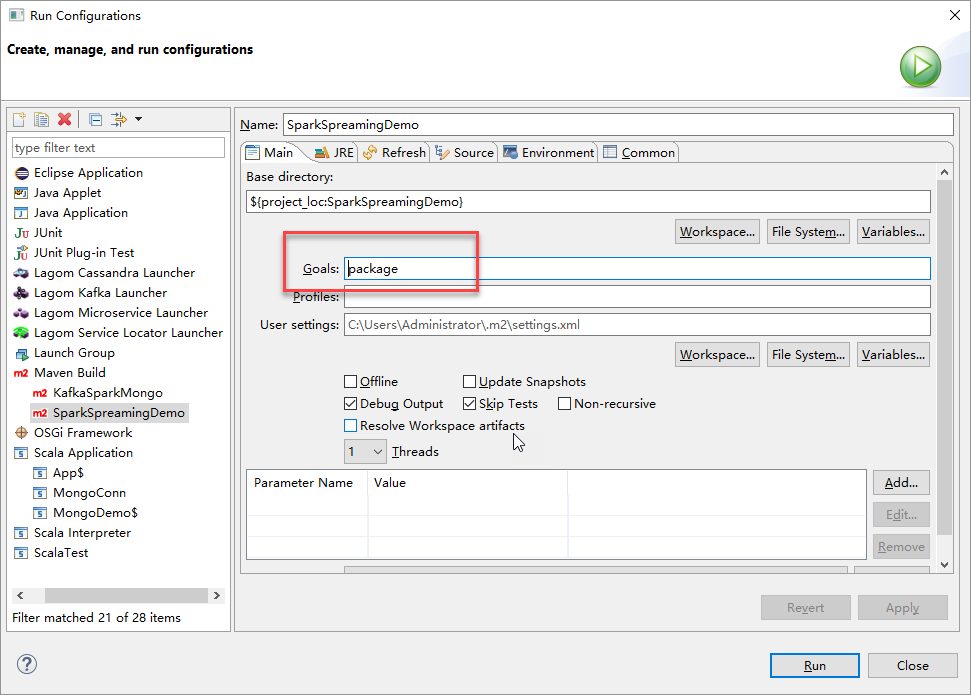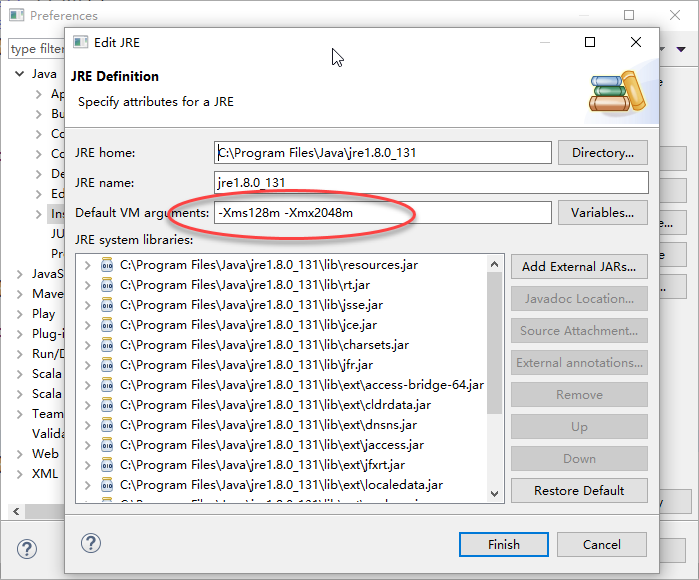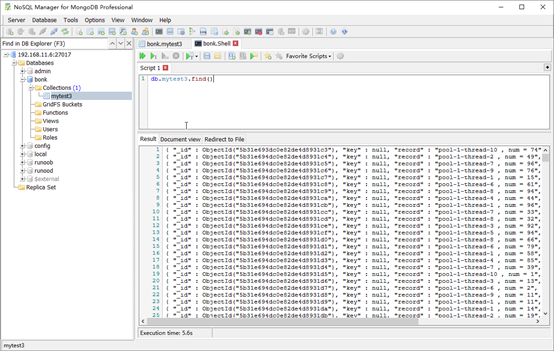【推荐】2019 Java 开发者跳槽指南.pdf(吐血整理) >>> 
一、总述
为了应对日志实时分析的需求,选择的实时处理框架为kafka + SparkStreaming + mongoDB. 具体流程是将数据(此次demo是从文件中读取某一行数据)实时写入到kafka中,SparkStreaming 按一定时间间隔(1s, 5s, 10s等) 从kafka中读取数据,经过加工处理,最后将数据实时写入到mongoDB中,同时会将数据沉淀到hdfs中,做为历史数据用于后期hive的批量加工分析。
二、集群部署
需要部署Kafka集群+Spark集群+Mongo ,具体部署过程可参考其它文档
三、SparkStreaming运行原理
此次案例中使用SparkStreaming,spark streaming是将持续不断输入的数据流转换成多个batch分片,使用一批spark应用实例进行处理。

四、流程实现
1. Kafka部分
1.1 说明
从文件中随机读取某一行数据写入到kafka中
1.2 实现
1) 创建maven 项目
在pom.xml中添加如下依赖
<dependency>
<groupId>org.apache.kafka</groupId>
<artifactId>kafka_2.11</artifactId>
<version>1.0.1</version>
</dependency>- 3 Kafka 生产类实现
关键类: ProducerRecord ,KafkaProducer
设置kafka运行基本参数,生成kafkaproducer对象
Properties props = new Properties();
props.put(ProducerConfig.BOOTSTRAP_SERVERS_CONFIG, "kafka001:9092, kafka002:9092, kafka003:9092");
props.put(ProducerConfig.KEY_SERIALIZER_CLASS_CONFIG, StringSerializer.class.getName()); //序列化key
props.put(ProducerConfig.VALUE_SERIALIZER_CLASS_CONFIG, StringSerializer.class.getName()); //序列化value
return new KafkaProducer<String, String>(props);
生产者核心代码:
record = new ProducerRecord<String, String>(topic, String.valueOf(date), value); //参数为要写入的topic,key, value
producer.send(record);
- 4 多线程写入
设定线程池的线程数量
ExecutorService executor = Executors.newFixedThreadPool(30);设定多线程,线程个数为ThreadNum
for (int i = 0; i < ThreadNum; i++) {
Runnable run = new RunnerObject(i);
executor.execute(run);
}
每个线程生成消息,消息数为count
for (int i = 0; i < count; i++) {
value = readTxt("/home/hadoop/macmilun.txt");
record = new ProducerRecord<String, String>(topic, String.valueOf(date), value);
producer.send(record);
}
1.5 打包上传服务器
此处选择fat jar工具进行打包,工具可以去网上下载。也可以使用maven工具进行打包。

运行程序
java -jar KafkaThreads.jar
2. Spark部分
2.1 说明
SparkStreaming 读取kafka的消息数据,经过加工处理(此处只做简单的数据长度统计),将结果数据写入到mongoDB中
2.2 创建maven项目
pom.xml 依赖如下:
<dependency>
<groupId>org.apache.spark</groupId>
<artifactId>spark-streaming-kafka-0-10_2.11</artifactId>
<version>2.3.1</version>
</dependency>
<dependency>
<groupId>org.apache.spark</groupId>
<artifactId>spark-streaming_2.11</artifactId>
<version>2.3.1</version>
<scope>provided</scope>
</dependency>
<dependency>
<groupId>org.apache.zookeeper</groupId>
<artifactId>zookeeper</artifactId>
<version>3.4.5</version>
<scope>provided</scope>
</dependency>
<dependency>
<groupId>org.mongodb</groupId>
<artifactId>casbah-core_2.11</artifactId>
<version>3.1.1</version>
</dependency>
<dependency>
<groupId>org.mongodb.mongo-hadoop</groupId>
<artifactId>mongo-hadoop-spark</artifactId>
<version>2.0.1</version>
</dependency>2.3 实现与kafka的信息交互
1) 说明
SparkStreaming 获取kafka的消息有Receiver和Direct两种方式,因为direct方式有更多的优势,所以此处选择direct方式进行处理。
注:使用direct方式,spark版本 > 1.3
2) 原理
Direct方式可以将kafka的offset 信息写入到zookeeper节点中,以此来保证数据不丢失。kafka每个分区对应zookeeper上topic节点下的一个子节点
如下图所示表示该topic下存在5个分区

3) 核心代码实现(后面附完整代码)
导入jar包
因为ide本身并不完善,import jar时,有时会引入跟所需不一致的jar包,可参考以下引入结果(部分)
import org.apache.spark.streaming.kafka010.KafkaUtils
import org.apache.spark.streaming.kafka010.LocationStrategies.PreferConsistent
import org.apache.spark.streaming.kafka010.ConsumerStrategies.Subscribe
import org.apache.spark.SparkConf
import org.apache.spark.SparkContext
import org.apache.spark.streaming.Seconds
import org.apache.spark.streaming.StreamingContext
import org.apache.kafka.common.serialization.StringDeserializer
import org.apache.spark.streaming.dstream.InputDStream
import org.apache.spark.streaming.kafka010.HasOffsetRanges
import org.apache.spark.streaming.kafka010.OffsetRange
初始化spark相关变量; 初始化SparkStreaming时会设置窗口时间,即批处理的时间间隔. Seconds(3)表示每次处理3秒之内所获取到的数据
val conf = new SparkConf().setMaster("spark://hadoop001:7077").setAppName("KafkaThreads");
val sc = new SparkContext(conf)
val ssc = new StreamingContext(sc, Seconds(3));
设置kafka参数
val kafkaParams = Map[String, Object](
"bootstrap.servers" -> "kafka001:9092, kafka002:9092, kafka003:9092",
"key.deserializer" -> classOf[StringDeserializer],
"value.deserializer" -> classOf[StringDeserializer],
"group.id" -> "test",
"auto.offset.reset" -> "latest",
"enable.auto.commit" -> (false: java.lang.Boolean))
//判断zookeeper上是否存在kafka的topic节点,如果没有则创建
if(!isNodeExists(znodeFather)){
zk.create(s"${znodeFather}", null, Ids.OPEN_ACL_UNSAFE, CreateMode.PERSISTENT)
}
判断zookeeper节点上是否有kafka各分区的offset信息,如果有则分别读取分区的offset信息,并从该offset处从相应分区中读取数据
//节点非空,并存在子节点; 遍历各子节点获取kafka各分区的offset; 一个分区对应一个子节点
if(!children.isEmpty()){
for(i <- 0 until children.size()){
val nodeData = new String(zk.getData(s"${znodeFather}/${i}", true, null), "utf-8").split(":")
val tp = new TopicPartition(nodeData(0).toString(), i) // 0:topic 1:offset
newOffsets += (tp -> nodeData(1).toLong)
}
KafkaUtils.createDirectStream[String, String](
ssc,
PreferConsistent,
Subscribe[String, String](topics, kafkaParams, newOffsets))
//节点为空,则说明是第一次读取;每个分区对应一个子节点,读取时分别从offset的 0值开始读取
newOffsets += (new TopicPartition("kafka-threads", 0) -> 0)
KafkaUtils.createDirectStream[String, String](
ssc,
PreferConsistent,
Subscribe[String, String](topics, kafkaParams, newOffsets))
//获取各分区的offset值;如果子节点存在则进行offset值更新,如果子节点不存在,则进行创建并赋值
Array[OffsetRange]()
kafkaStreamRecords.transform{ consumerRecords =>
offsetRanges = consumerRecords.asInstanceOf[HasOffsetRanges].offsetRanges
consumerRecords
}.foreachRDD{ partitions =>
for(o <- offsetRanges){
val flag = isNodeExists(s"${znodeFather}/${o.partition}")
if(flag){
zk.setData(s"${znodeFather}/${o.partition}", s"${o.topic}:${o.untilOffset}".getBytes, -1)
}else{
zk.create(s"${znodeFather}/${o.partition}", s"${o.topic}:${o.untilOffset}".getBytes, Ids.OPEN_ACL_UNSAFE, CreateMode.PERSISTENT)
}
}
将数据写入到mongo中
1) 导入jar包, 注:引入时一定要按照以下包导入,不要跟java的驱动包搞混
import com.mongodb.casbah.commons.MongoDBObject
import com.mongodb.DBObject
import com.mongodb.casbah.MongoClient
2) 初始化连接
var mongoCli = MongoClient("192.168.11.7", 27017)
val mongoDB = mongoCli.getDB("hadoop")
val mongoTB = mongoDB.getCollection(collectionName)
3) 封装数据写入DB中
将数据封装成DBObject格式数据写入mongo
partitions.
foreach{
record =>
val records:DBObject = MongoDBObject("key" -> record.key(), "record" -> record.value(), "length" -> record.value().length())
insert(records, "mytest3") ----- mytest3是要写入的表名
}
2.5 程序打包
选择maven进行打包,
右键项目 -> [run as] -> [Run Configurations] 如下图所示:

打包时如果遇到内存不足的错误,可在[window] -> [preferences] -> [java] -> [Installed Jars] 选中右面的jar文件,选择edit, 设置jvm的大小,如下图所示:

将程序上传到服务器,使用docker命令拷贝到spark相应容器中
2.6
运行jar包
cd /.../spark/bin
./spark-submit --class SparkDemo.sparkdemo.PersistKafkaSparkZk --executor-memory 2G /home/hadoop/sparkdemo-0.0.1-SNAPSHOT.jar
2.7 连接到mongo中,查看数据

附:SparkStreaming读写kafka完整DEMO代码
PersistKafkaSparkZk 类
import org.apache.zookeeper._
import org.apache.kafka.common.TopicPartition
import org.apache.spark.streaming.kafka010.KafkaUtils
import org.apache.spark.streaming.kafka010.LocationStrategies.PreferConsistent
import org.apache.spark.streaming.kafka010.ConsumerStrategies.Subscribe
import org.apache.spark.SparkConf
import org.apache.spark.SparkContext
import org.apache.spark.streaming.Seconds
import org.apache.spark.streaming.StreamingContext
import org.apache.kafka.common.serialization.StringDeserializer
import org.apache.spark.streaming.dstream.InputDStream
import org.apache.spark.streaming.kafka010.HasOffsetRanges
import org.apache.spark.streaming.kafka010.OffsetRange
import org.apache.spark.TaskContext
import org.apache.zookeeper.ZooDefs.Ids
import com.mongodb.casbah.commons.MongoDBObject
import com.mongodb.DBObject
import com.mongodb.casbah.MongoClient
import org.apache.log4j.Level
import org.apache.log4j.Logger
import java.util.Date
object PersistKafkaSparkZk {
val znodeFather = "/kafka-threads-offset"
val topics = Array("kafka-threads")
var mongoCli = MongoClient("192.168.11.7", 27017)
var zk : ZooKeeper = _
Logger.getLogger("org").setLevel(Level.ERROR)
def main(args: Array[String]): Unit = {
val conf = new SparkConf().setMaster("spark://hadoop001:7077").setAppName("KafkaThreads");
val sc = new SparkContext(conf)
val ssc = new StreamingContext(sc, Seconds(3));
val kafkaParams = Map[String, Object](
"bootstrap.servers" -> "kafka001:9092, kafka002:9092, kafka003:9092",
"key.deserializer" -> classOf[StringDeserializer],
"value.deserializer" -> classOf[StringDeserializer],
"group.id" -> "test",
"auto.offset.reset" -> "latest",
"enable.auto.commit" -> (false: java.lang.Boolean))
zk = new ZooKeeper("kafka001:2181", 5000 , new Watcher(){
def process(event:WatchedEvent ) {
}
})
if(!isNodeExists(znodeFather)){
zk.create(s"${znodeFather}", null, Ids.OPEN_ACL_UNSAFE, CreateMode.PERSISTENT)
}
val children = zk.getChildren(znodeFather, true)
var newOffsets: Map[TopicPartition, Long] = Map()
val kafkaStreamRecords = if(!children.isEmpty()){
for(i <- 0 until children.size()){
val nodeData = new String(zk.getData(s"${znodeFather}/${i}", true, null), "utf-8").split(":")
val tp = new TopicPartition(nodeData(0).toString(), i) // 0:topic 1:offset
newOffsets += (tp -> nodeData(1).toLong)
}
KafkaUtils.createDirectStream[String, String](
ssc,
PreferConsistent,
Subscribe[String, String](topics, kafkaParams, newOffsets))
}else {
newOffsets += (new TopicPartition("kafka-threads", 0) -> 0)
KafkaUtils.createDirectStream[String, String](
ssc,
PreferConsistent,
Subscribe[String, String](topics, kafkaParams, newOffsets))
}
val now = new Date()
val start = now.getTime
var offsetRanges = Array[OffsetRange]()
kafkaStreamRecords.transform{ consumerRecords =>
offsetRanges = consumerRecords.asInstanceOf[HasOffsetRanges].offsetRanges
consumerRecords
}.foreachRDD{ partitions =>
for(o <- offsetRanges){
val flag = isNodeExists(s"${znodeFather}/${o.partition}")
if(flag){
zk.setData(s"${znodeFather}/${o.partition}", s"${o.topic}:${o.untilOffset}".getBytes, -1)
}else{
zk.create(s"${znodeFather}/${o.partition}", s"${o.topic}:${o.untilOffset}".getBytes, Ids.OPEN_ACL_UNSAFE, CreateMode.PERSISTENT)
}
}
println("partitions.isEmpty() =========================================== " +partitions.isEmpty())
partitions.
foreach{
record =>
val records:DBObject = MongoDBObject("key" -> record.key(), "record" -> record.value(), "length" -> record.value().length())
insert(records, "mytest3")
}
}
ssc.start()
ssc.awaitTermination()
}
def insert(row : DBObject, collectionName : String){
val mongoDB = mongoCli.getDB("mydb")
val mongoTB = mongoDB.getCollection(collectionName)
mongoTB.insert(row)
}
def isNodeExists(znode : String) : Boolean = {
val flag = zk.exists(znode, true) match {
case null => false
case _ => true
}
flag
}
}
zookeeper工具类
Zk
import org.apache.zookeeper.Watcher
import org.apache.zookeeper.ZooKeeper
import org.apache.zookeeper.WatchedEvent
import org.apache.zookeeper.ZooDefs.Ids
import org.apache.zookeeper.CreateMode
import scala.util.Try
import org.apache.log4j.Logger
import org.apache.log4j.Level
object Zk {
/*创建 zookeeper对象 */
val SESSION_TIMEOUT = 5000
var zk:ZooKeeper = _
def watcher = new Watcher(){
def process(event:WatchedEvent ) {
}
}
def init(){
zk = new ZooKeeper("kafka001:2181", SESSION_TIMEOUT , watcher)
}
def znodeCreate(znode: String, data: String){
zk.create(s"/$znode", data.getBytes, Ids.OPEN_ACL_UNSAFE, CreateMode.PERSISTENT)
}
def znodeDataSet(znode: String, data: String) {
zk.setData(s"/$znode", data.getBytes(), -1)
}
def znodeDataGet(znode: String): Array[String] = {
init()
try {
new String(zk.getData(s"/$znode", true, null), "utf-8").split(",")
} catch {
case _: Exception => Array()
}
}
def znodeIsExists(znode: String): Boolean ={
init()
zk.exists(s"/$znode", true) match {
case null => false
case _ => true
}
}
def offsetWork(znode: String, data: String) {
init()
zk.exists(s"/$znode", true) match {
case null => znodeCreate(znode, data)
case _ => znodeDataSet(znode, data)
}
zk.close()
}
}
pom.xml 完整内容
<project xmlns="http://maven.apache.org/POM/4.0.0" xmlns:xsi="http://www.w3.org/2001/XMLSchema-instance" xsi:schemaLocation="http://maven.apache.org/POM/4.0.0 http://maven.apache.org/maven-v4_0_0.xsd">
<modelVersion>4.0.0</modelVersion>
<groupId>SparkDemo</groupId>
<artifactId>sparkdemo</artifactId>
<version>0.0.1-SNAPSHOT</version>
<name>${project.artifactId}</name>
<description>My wonderfull scala app</description>
<inceptionYear>2018</inceptionYear>
<licenses>
<license>
<name>My License</name>
<url>http://....</url>
<distribution>repo</distribution>
</license>
</licenses>
<properties>
<maven.compiler.source>1.8</maven.compiler.source>
<maven.compiler.target>1.8</maven.compiler.target>
<encoding>UTF-8</encoding>
<scala.version>2.11.11</scala.version>
<scala.compat.version>2.11</scala.compat.version>
<spec2.version>4.2.0</spec2.version>
</properties>
<dependencies>
<dependency>
<groupId>org.scala-lang</groupId>
<artifactId>scala-library</artifactId>
<version>${scala.version}</version>
</dependency>
<!-- Test -->
<dependency>
<groupId>junit</groupId>
<artifactId>junit</artifactId>
<version>4.12</version>
<scope>test</scope>
</dependency>
<dependency>
<groupId>org.scalatest</groupId>
<artifactId>scalatest_${scala.compat.version}</artifactId>
<version>3.0.5</version>
<scope>test</scope>
</dependency>
<dependency>
<groupId>org.specs2</groupId>
<artifactId>specs2-core_${scala.compat.version}</artifactId>
<version>${spec2.version}</version>
<scope>test</scope>
</dependency>
<dependency>
<groupId>org.specs2</groupId>
<artifactId>specs2-junit_${scala.compat.version}</artifactId>
<version>${spec2.version}</version>
<scope>test</scope>
</dependency>
<dependency>
<groupId>org.apache.spark</groupId>
<artifactId>spark-streaming-kafka-0-10_2.11</artifactId>
<version>2.3.1</version>
</dependency>
<dependency>
<groupId>org.apache.spark</groupId>
<artifactId>spark-streaming_2.11</artifactId>
<version>2.3.1</version>
<scope>provided</scope>
</dependency>
<dependency>
<groupId>org.apache.zookeeper</groupId>
<artifactId>zookeeper</artifactId>
<version>3.4.5</version>
<scope>provided</scope>
</dependency>
<dependency>
<groupId>org.mongodb</groupId>
<artifactId>casbah-core_2.11</artifactId>
<version>3.1.1</version>
</dependency>
<dependency>
<groupId>org.mongodb.mongo-hadoop</groupId>
<artifactId>mongo-hadoop-spark</artifactId>
<version>2.0.1</version>
</dependency>
</dependencies>
<build>
<sourceDirectory>src/main/scala</sourceDirectory>
<testSourceDirectory>src/test/scala</testSourceDirectory>
<plugins>
<plugin>
<!-- see http://davidb.github.com/scala-maven-plugin -->
<groupId>net.alchim31.maven</groupId>
<artifactId>scala-maven-plugin</artifactId>
<version>3.3.2</version>
<executions>
<execution>
<goals>
<goal>compile</goal>
<goal>testCompile</goal>
</goals>
<configuration>
<args>
<arg>-dependencyfile</arg>
<arg>${project.build.directory}/.scala_dependencies</arg>
</args>
</configuration>
</execution>
</executions>
</plugin>
<plugin>
<groupId>org.apache.maven.plugins</groupId>
<artifactId>maven-surefire-plugin</artifactId>
<version>2.21.0</version>
<configuration>
<argLine>-Xmx1024m -XX:MaxPermSize=1024m -noverify</argLine>
<!-- Tests will be run with scalatest-maven-plugin instead -->
<skipTests>true</skipTests>
</configuration>
</plugin>
<plugin>
<groupId>org.scalatest</groupId>
<artifactId>scalatest-maven-plugin</artifactId>
<version>2.0.0</version>
<configuration>
<reportsDirectory>${project.build.directory}/surefire-reports</reportsDirectory>
<junitxml>.</junitxml>
<filereports>TestSuiteReport.txt</filereports>
<!-- Comma separated list of JUnit test class names to execute -->
<jUnitClasses>samples.AppTest</jUnitClasses>
</configuration>
<executions>
<execution>
<id>test</id>
<goals>
<goal>test</goal>
</goals>
</execution>
</executions>
</plugin>
<!-- 去掉重复引用的jar包 -->
<plugin>
<groupId>org.apache.maven.plugins</groupId>
<artifactId>maven-shade-plugin</artifactId>
<version>1.4</version>
<executions>
<execution>
<phase>package</phase>
<goals>
<goal>shade</goal>
</goals>
<configuration>
<filters>
<filter>
<artifact>*:*</artifact>
<excludes>
<exclude>META-INF/*.SF</exclude>
<exclude>META-INF/*.DSA</exclude>
<exclude>META-INF/*.RSA</exclude>
</excludes>
</filter>
</filters>
<transformers>
<transformer
implementation="org.apache.maven.plugins.shade.resource.ManifestResourceTransformer">
<mainClass>com.fxc.rpc.impl.member.MemberProvider</mainClass>
</transformer>
</transformers>
</configuration>
</execution>
</executions>
</plugin>
<!-- 将依赖的jar包打进jar文件 -->
<plugin>
<groupId>org.apache.maven.plugins</groupId>
<artifactId>maven-shade-plugin</artifactId>
<version>2.3</version>
<executions>
<execution>
<phase>package</phase>
<goals>
<goal>shade</goal>
</goals>
<configuration>
<transformers>
<transformer
implementation="org.apache.maven.plugins.shade.resource.ManifestResourceTransformer">
<mainClass>util.Microseer</mainClass>
</transformer>
</transformers>
</configuration>
</execution>
</executions>
</plugin>
</plugins>
</build>
</project>
来源:oschina
链接:https://my.oschina.net/snowpipe/blog/3144501